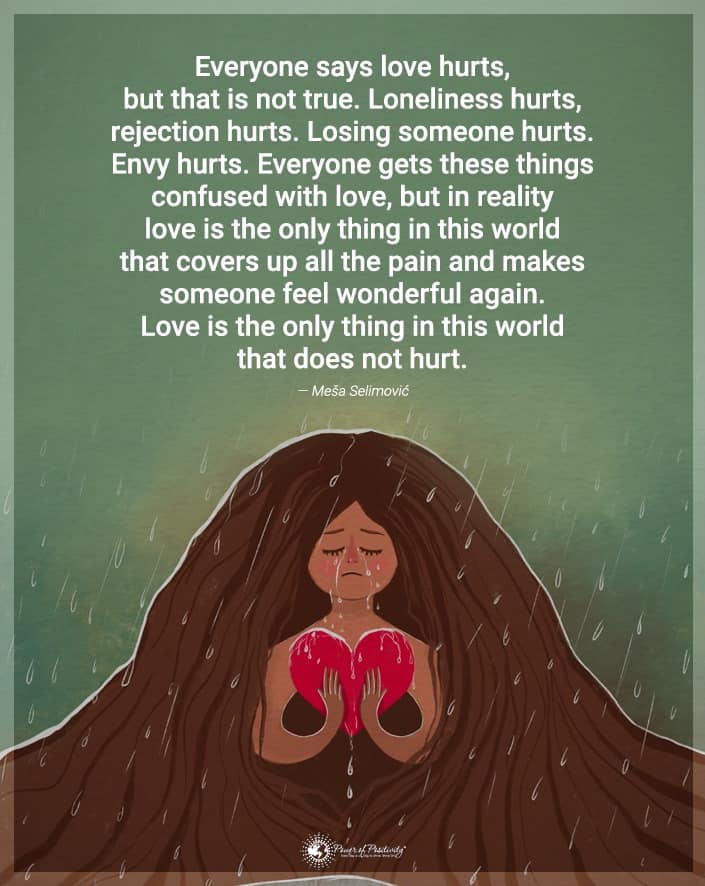Some relationships are tumultuous. Some people go together like oil and water, and whenever they’re in the same vicinity, it’s nothing but trouble. Of course, having peace in your life doesn’t mean that there won’t be any trouble or tension, but it’s learning how to handle this conflict so that you can coexist.
Do you have someone in your life that you’re constantly bickering with over trivial things, and you need to reconcile? For example, you may have issues with miscommunication and arguments with an exchange of harsh words. If you examine this relationship, the past has a strong bearing on the present.
Sadly, these connections can kill you from the inside out, and you may need the resolution to get past these deep hurts. For example, do you have a strained relationship with your mother, father, spouse, or relative? You see them at family functions, but you don’t know how to coexist with them peacefully.
While you may never have the relationship you want, you can undoubtedly have a workable connection. You can and should get to a place where you can peacefully coexist and tell each other sentiments like “I love you.”
Ten Actionable Ways to Reconcile A Troubled Relationship
 Mending fences isn’t something that comes easy. It’s one of the hardest things to do as it involves matters of the heart. First, you must realize that not all relationships can and should be reconciled, and you need to be okay with that.
Mending fences isn’t something that comes easy. It’s one of the hardest things to do as it involves matters of the heart. First, you must realize that not all relationships can and should be reconciled, and you need to be okay with that.
It takes courage and strength to get where you want to be. Here are a few steps that can help your troubled relationship change course.
1. Be Honest About the Situation
Barton Goldsmith, Ph.D., points out that honesty is the most significant factor that can “make or break” a relationship.
Many times, you have a false sense of reality regarding your relationships. Don’t sweep your feelings under the rug and ignore things that have happened; you need to get some things out in the open. If you have unrealistic expectations, then you’re in for a major letdown.
It’s time to confront all the uneasiness you feel inside, and by doing this, you will have a great sense of self-control. The key point is that you need to control the situation and not let the problem control you.
2. Step Out of Your Comfort Zone
If you want resolution and to reconcile the situation, then you need to be assertive. Tell the person how this wedge between you is troubling you, and realize that you’re making a huge first step. Now, you’re going to need to swallow a bit of your pride and trust that things will be okay.
There are no promises that the other party will be receptive to your request, but you must make a move in faith. Don’t feel that you’re weak by showing someone that you want to fix things. On the contrary, you’re showing tremendous courage.
Yolanda Hall Asbell, a clinical mental health counselor, advises that stepping out of your comfort zone is critical to shaking off mental health impacts on all areas of your life. She said the following:
“Mental health is important just like your physical health. The brain makes the body function. If the brain is not healthy, neither is anything else.”
3. Approach with Peace and Honesty
Before you confront anyone, you need to get your attitude in check. You need to make sure your motives are pure, and you’re coming from a place of peace and honesty. Don’t think that this will be easy for one minute, but your hard work will pay off.
Be realistic and know that the other party might be a bit defensive, but a slight resistance is normal when there are hard feelings in the way. You need to be transparent and let them see how painful this situation is for you, but you also need to show love, compassion, and an attitude of willingness to work it out.
4. Listen and Communicate
You’re putting your heart on the line and telling this person your deepest hurts and regrets. If things go as planned, they may open to you as well. Give them a chance to speak, and don’t interrupt them.
No matter how hard it is to hear the things they say, it would help if you made sure that you listen intensely. The only way both of you will move past this place you’re in is by communicating. So grab some tissues because this isn’t going to be an easy conversation.
Additionally, you may find that it takes several conversations to get your connection where it needs to be. Don’t be frustrated if you don’t seem to have anything resolved after one talk. When there are years of hurt and damage, it’s not going to mend itself overnight.
The key is to listen to one another and be considerate of each other’s feelings. There is a tactful way to get your point across. There’s no need to call names or put one another down either.
5. Make A Deal
Relationships are about give and take. So don’t feel bad if you need to make a deal with the other person to ensure the relationship gets back on track. For instance, if you’re fighting with your mother-in-law, you can promise that you won’t involve the children in their disputes.
Perhaps she’s upset because she feels you’ve kept the kids from her. So, this would be a situation where you two could strike a deal. When making agreements, you don’t need to sacrifice your values or beliefs to make them happy.
The point is that you both need this relationship to work for various reasons, so you each state what you need from the partnership and then agree on some issues. If you both don’t feel comfortable in the deals you’re making, then it’s never going to work.
 6. Set Firm Boundaries
6. Set Firm Boundaries
Why do people always view boundaries as bad things? According to the National Department of Health, boundaries are good for all relationships because they establish ground rules for you to understand. For example, if your spouse refuses to let your children go to your mother’s because they are upset with them, you need to establish some ground rules.
The children didn’t do anything to cause the rift in the relationship, nor should they be used as a bargaining chip in this feud. Don’t be afraid to write down your demands and draw a firm line in the sand for your limits. Always ensure people know where they stand with you.
7. Follow Through
All the compromises and plans you make are worthless if you don’t follow through with things. If you say you’re going to do something, then you need to do it. No one said the process would be easy, but it’s worth it to reconcile and have peace of mind.
Can you let go of the past no matter how traumatizing it was for you? When you make promises, you need to honor your word. Follow-through will allow the other person to learn to trust again.
However, if you don’t stay true to what you say, you can hurt the relationship even further. Healing old wounds means stepping out of learned behaviors and establishing new ways to coexist in harmony.
8. Get Professional Help
There are many situations when you need to call in for professional help. Counselors can act as third-party mediators that can help to identify issues that might not be easily recognizable. In addition, they can help you find practical coping skills to bring resolution.
Since counselors are well trained in mediations, they know what usually works and what doesn’t. Therefore, it’s well worth the time and investment to have a third party help when the relationship is an important one.
9. Leave the Past in The Past
Once you’ve moved on and are working on your relationship, it’s time to leave the past behind you. Every time you get a little bit frustrated, you may be inclined to bring up past situations. While you’re human and you can’t forget, you need to leave those old things buried.
Each time you bring up issues from the past, you’re only hindering your future. Plus, you can stir up those old feelings of resentment and anger, but no one wants to deal with all of that.
10. Accept What Is
Having a realistic outlook is essential. If you’ve tried everything you know to do and nothing is working, then realize it’s not on you. If the other party won’t reconcile with you, then it’s on them.
If you’ve tried everything within your ability and have failed, then you should move on. Sometimes it’s hard to move on from relatives, but severing ties may be the best way to heal.
 Final Thoughts on Ways to Reconcile a Strained Relationship
Final Thoughts on Ways to Reconcile a Strained Relationship
According to Psychology Today, relationships take lots of work, and they can be relentlessly difficult. Even the best ones go through times when things are troublesome. If you’re serious about working things out with someone you love, then you need to take the proper steps to find healing and reconcile.
It’s not going to be easy, but it will be worth the effort you put into it. Sometimes, these relationships are significant to you, like your parents or a sibling. These people require more leniency because of the bond that is there.
You learn to make allowances for your dad or mom because they gave your life and have been there for you. Of course, it doesn’t mean that things will magically heal with one conversation, but you can get on a better path towards understanding one another.
The post Therapists Explain 10 Ways to Reconcile a Strained Relationship appeared first on Power of Positivity: Positive Thinking & Attitude.





